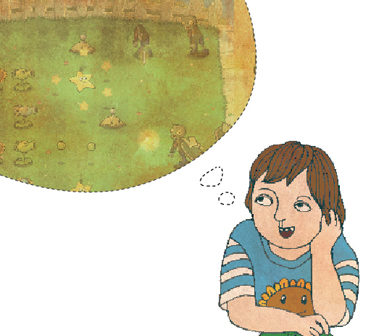When we decided to homeschool our children for another year rather than send them to a local school, we were worried that the kids wouldn’t learn any Mandarin. What was the benefit of living seven years in China (and mostly in a remote corner of Beijing), if we weren’t going to take advantage of this opportunity to study Mandarin?
Over the years, we’ve contracted a Chinese teacher to work with Myles a few hours a week. We acknowledged that this workload could never lead to true bilingualism, but we hoped that he would at least become comfortable in a Chinese-speaking environment. His tutor and I could see his progress in his lessons, particularly with his writing. When it came to real-world situations, however, my son was reticent about speaking Chinese beyond revealing his name, age, and country of origin.
In the last year, we noticed a change in Myles’ approach to Chinese lessons. I had to nag him less frequently about completing his written homework; instead, he started begging to practice new characters after each session. He was also initiating conversations in Chinese with friends and sometimes even strangers on the subway.
The reason behind this change? Playing 植物大战僵尸 (Zhíwù dàzhàn jiāngshī).
Yes, it was Plants vs. Zombies and the vocabulary of vegetation and antagonism that re-ignited Myles’ interest in Chinese. Besides interacting with fellow gamers, not many of these words have much practical use or academic value. Myles, however, found that learning Chinese could help him connect with people who shared his pursuits – one of the purposes of language in the first place.
This path of study was an unusual one, but his teacher was all for it – even though it was outside the scope of the usual books and syllabi. Myles learned words like 玩游戏 (wán yóuxì) or “to play a game,” 蘑菇 (mógu) or “mushroom,” 爆炸 (bàozhà) or “to explode,” and 地刺 (dì cì) or “spike weed.” He excitedly used this new jargon without any prompting from me.
Since then, he has filled his notebooks with homework based on other subjects he enjoys, like the computer game Minecraft, which is known in Chinese as 我的世界 (Wǒ de shìjiè) or “My World.”
Of his own volition, Myles also started working on Chinese translations for words from his favorite book, The Hobbit. His eyes lit up when discussing the goings on in 霍比特人 (Huòbǐtèrén) with his friends, borrowing the Chinese translation for the eponymous movie released earlier this year. They would talk about the quest in the book to 孤山 (Gūshān), the Lonely Mountain, to battle the gold-hoarding dragon called 史矛革 (Shǐmáogé) or Smaug.
Seven years in China is too long a time not to develop some grasp of Mandarin. I knew that our tack with Myles would not lead to bilingualism, but I hoped to find a way of stimulating his curiosity and desire to learn and – most of all – to connect with other people. For now, that means more conversations about things like Plants vs. Zombies. I mean, 植物大战僵尸.
illustration by Sun Zheng.
This article originally appeared on p43 of the beijingkids July 2013 issue.
Check out the PDF version online at Issuu.com




